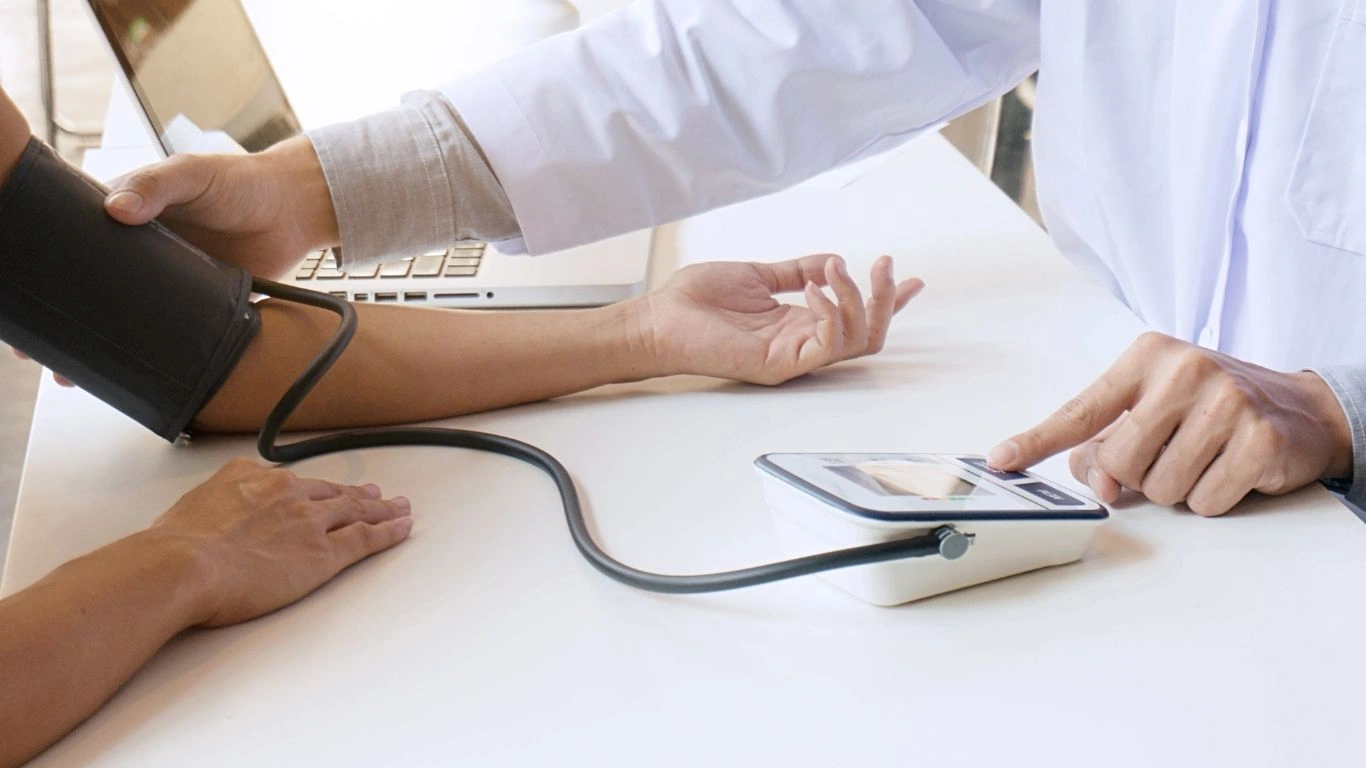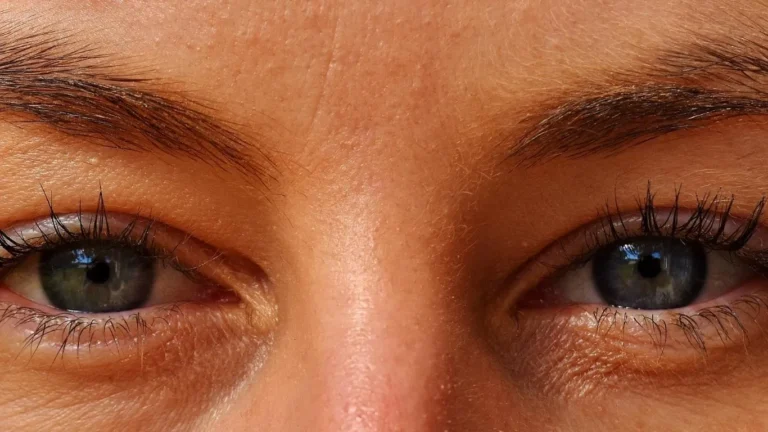Hypertension and Thyroid Issues Connection – What You Need to Know
Are you dealing with high blood pressure or thyroid problems, or maybe both? You might be wondering if these two health issues are linked. It turns out, they definitely can be. Let’s dive into the connection between hypertension and thyroid issues, and what you need to know to stay on top of your health!
When it comes to health, our body is a lot more connected than we might think. Most of us know that hypertension (high blood pressure) can lead to all sorts of problems, like heart disease or stroke. But did you know that thyroid issues can also play a role in hypertension? If you’re managing both, understanding this connection is key to improving your overall health. In this article, we’ll break down what hypertension and thyroid issues are, how they might be connected, and what steps you can take to manage both. So, let’s get started!

What is Hypertension?
Hypertension, or high blood pressure, is a condition where the force of the blood against the walls of your arteries is consistently too high. Over time, this can lead to serious problems like heart disease, kidney disease, or stroke. It’s often called the “silent killer” because many people don’t experience symptoms until it’s too late. There are a few things that can contribute to high blood pressure—like poor diet, lack of exercise, smoking, and even stress. But did you know that your thyroid can also impact your blood pressure?
What is the Thyroid, and How Does It Affect Your Health?
The thyroid is a butterfly-shaped gland in your neck that plays a crucial role in regulating many of your body’s functions. It produces hormones that control metabolism, energy levels, and even your heart rate. So, when your thyroid is out of balance, it can affect a lot more than just your energy.
There are two main types of thyroid disorders: hypothyroidism (an underactive thyroid) and hyperthyroidism (an overactive thyroid). Both of these conditions can have a direct impact on your cardiovascular health, including blood pressure.

How Are Hypertension and Thyroid Issues Connected?
Now, here’s where things get interesting. Both hypothyroidism and hyperthyroidism can have an effect on blood pressure. It’s not always obvious, but understanding this link can help you manage your health more effectively.
Hypothyroidism and High Blood Pressure
If you have hypothyroidism, your thyroid isn’t producing enough hormones to keep everything running smoothly. This can slow down your metabolism and cause a number of symptoms like weight gain, fatigue, and feeling cold all the time. But did you know it can also cause high blood pressure?
When your thyroid is underactive, your blood vessels may constrict, or become narrower, which can increase the pressure of the blood flowing through them. This makes it harder for your heart to pump blood, leading to elevated blood pressure. In fact, studies show that people with untreated hypothyroidism are more likely to develop high blood pressure.
Hyperthyroidism and High Blood Pressure
On the flip side, hyperthyroidism (an overactive thyroid) can also cause high blood pressure. When your thyroid produces too many hormones, it can speed up your metabolism and raise your heart rate. This increase in heart rate and the greater force exerted by the heart can raise your blood pressure as well.
Hyperthyroidism is often linked to systolic hypertension, which is the top number in your blood pressure reading. This means that your heart is working harder than normal, and it can have long-term effects on your cardiovascular health.
How to Manage Both Hypertension and Thyroid Issues
If you’re dealing with both hypertension and thyroid problems, it’s important to manage both conditions in a way that supports overall health. Here are some tips that can help:
1. Get Your Thyroid Levels Checked Regularly
If you have hypertension, it’s a good idea to get your thyroid levels checked. If you’re experiencing symptoms like weight gain, fatigue, or changes in heart rate, it might be worth asking your doctor for a thyroid test. Treating thyroid issues can help improve your blood pressure and reduce your risk of heart problems.
2. Take Medications as Prescribed
Both hypertension and thyroid disorders often require medication. For high blood pressure, doctors may prescribe medications like ACE inhibitors, beta-blockers, or diuretics. For thyroid problems, you might be given synthetic thyroid hormones (for hypothyroidism) or medications to control thyroid hormone levels (for hyperthyroidism).
Make sure to follow your doctor’s instructions when it comes to taking medication for both conditions. Sometimes, adjusting one medication can affect the other, so it’s important to stay in close contact with your healthcare provider.

3. Adopt a Heart-Healthy Lifestyle
Whether you’re managing hypertension or thyroid issues (or both), a heart-healthy lifestyle can make a big difference. Here’s what that might look like:
- Exercise regularly: Aim for at least 30 minutes of moderate exercise most days of the week.
- Eat a balanced diet: Focus on whole grains, fruits, veggies, and lean proteins. Limit salt and processed foods, which can worsen hypertension.
- Manage stress: Stress can raise your blood pressure, so finding ways to relax—whether it’s through meditation, yoga, or just taking time for yourself—is key.
- Get enough sleep: Poor sleep can negatively impact both your thyroid and blood pressure, so aim for 7-9 hours each night.
Conclusion
In summary, there’s a definite connection between hypertension and thyroid issues. Whether you have an underactive thyroid or an overactive one, both can affect your blood pressure in different ways. By getting regular checkups, managing medications, and living a heart-healthy lifestyle, you can improve your health and reduce the risks associated with both conditions.
If you have hypertension and thyroid issues, it’s important to work closely with your healthcare provider to find the right treatment plan for you. Taking charge of both conditions can help you feel better, stay healthier, and improve your quality of life.

Appendices
FAQs
- Can thyroid issues cause high blood pressure? Yes, both hypothyroidism and hyperthyroidism can contribute to high blood pressure in different ways.
- How does hypothyroidism affect blood pressure? Hypothyroidism can cause blood vessels to constrict, leading to higher blood pressure.
- Can hyperthyroidism cause low blood pressure? While hyperthyroidism usually raises blood pressure, in rare cases, it can cause a drop in blood pressure.
- What’s the best treatment for both hypertension and thyroid problems? Treatment depends on the severity of each condition. It typically involves medication for both high blood pressure and thyroid hormone regulation, along with lifestyle changes.
- Should I worry about both conditions together? While managing both can be challenging, with the right treatment and lifestyle adjustments, you can effectively control both hypertension and thyroid issues.
References
- American Heart Association (2024). Hypertension and Thyroid Disorders: A Clinical Guide. Read Article
- National Institute of Diabetes and Digestive and Kidney Diseases (2023). Thyroid and Cardiovascular Disease: What You Need to Know. Read Article
- Jones, M., & Lee, P. (2022). The Impact of Thyroid Disease on Blood Pressure Regulation. Journal of Endocrine and Cardiovascular Health, 50(4), 200-210. Read Article
Disclaimer
Disclaimer: The information provided in this article is for educational purposes only and should not replace professional medical advice. Always consult your doctor for personalized treatment and guidance regarding your hypertension and thyroid health.

Dr. Gwenna Aazee is a board-certified Internal Medicine Physician with a special focus on hypertension management, chronic disease prevention, and patient education. With years of experience in both clinical practice and medical writing, she’s passionate about turning evidence-based medicine into accessible, actionable advice. Through her work at Healthusias.com, Dr. Aazee empowers readers to take charge of their health with confidence and clarity. Off the clock, she enjoys deep dives into nutrition research, long walks with her rescue pup, and simplifying medical jargon one article at a time.







